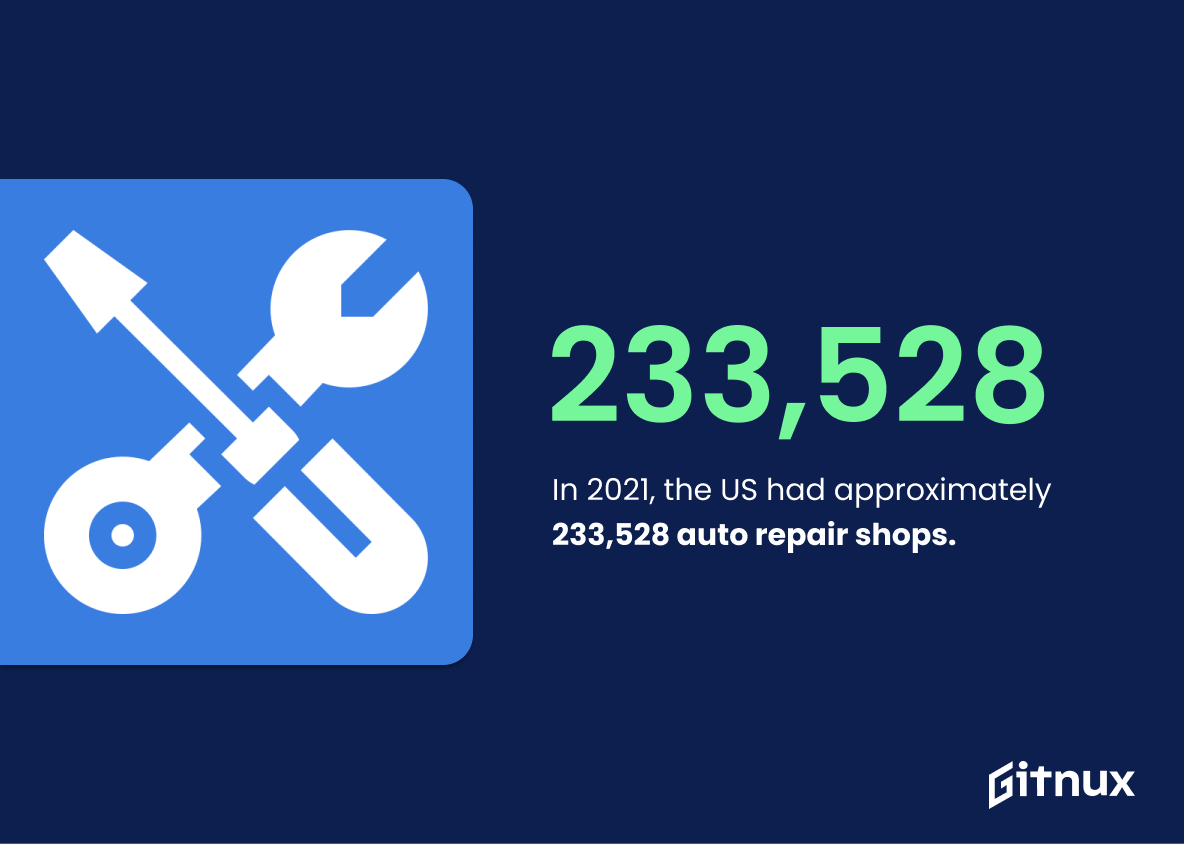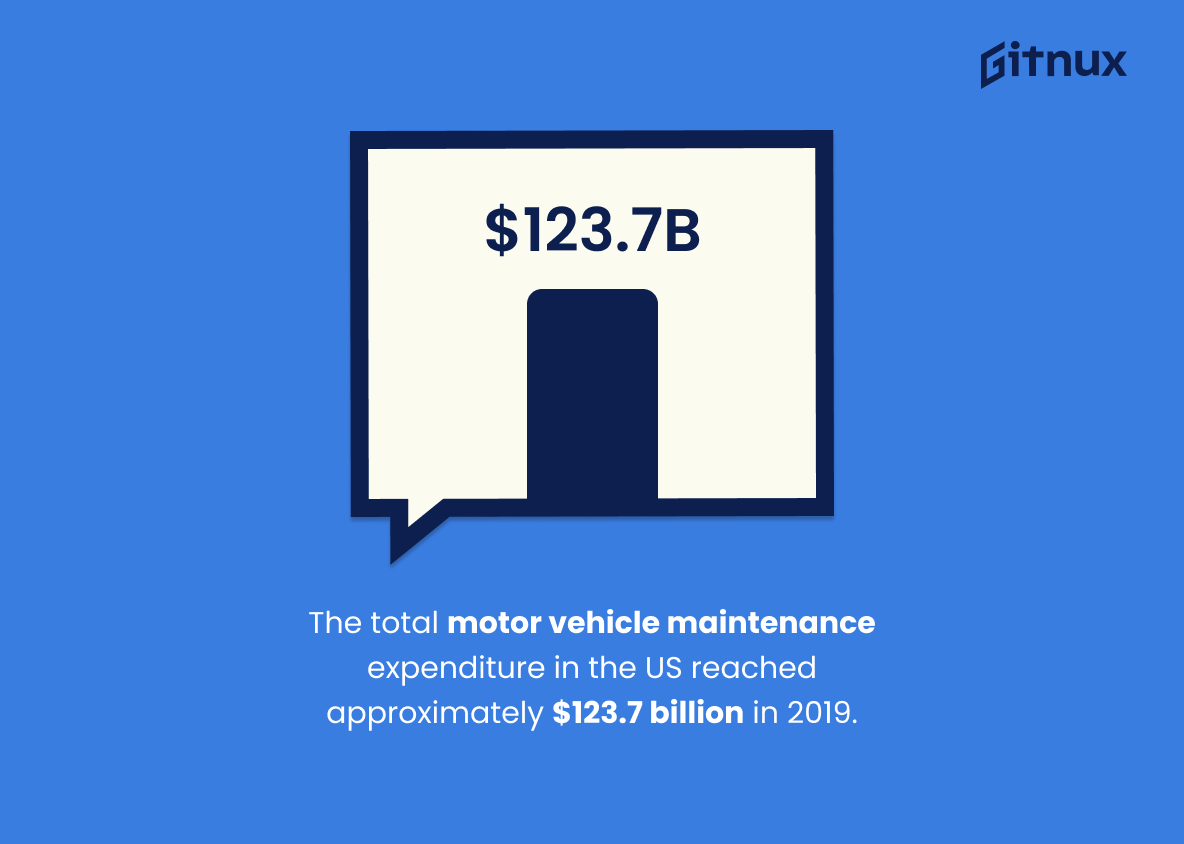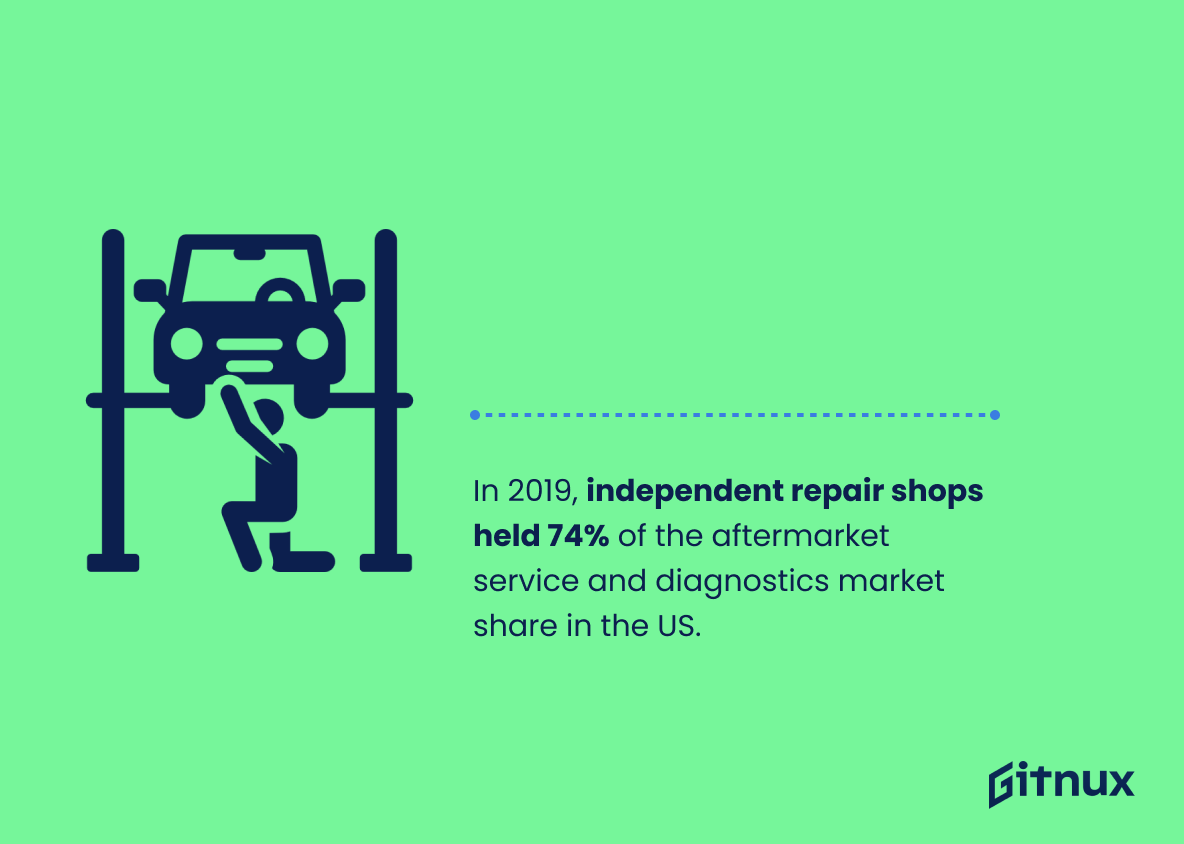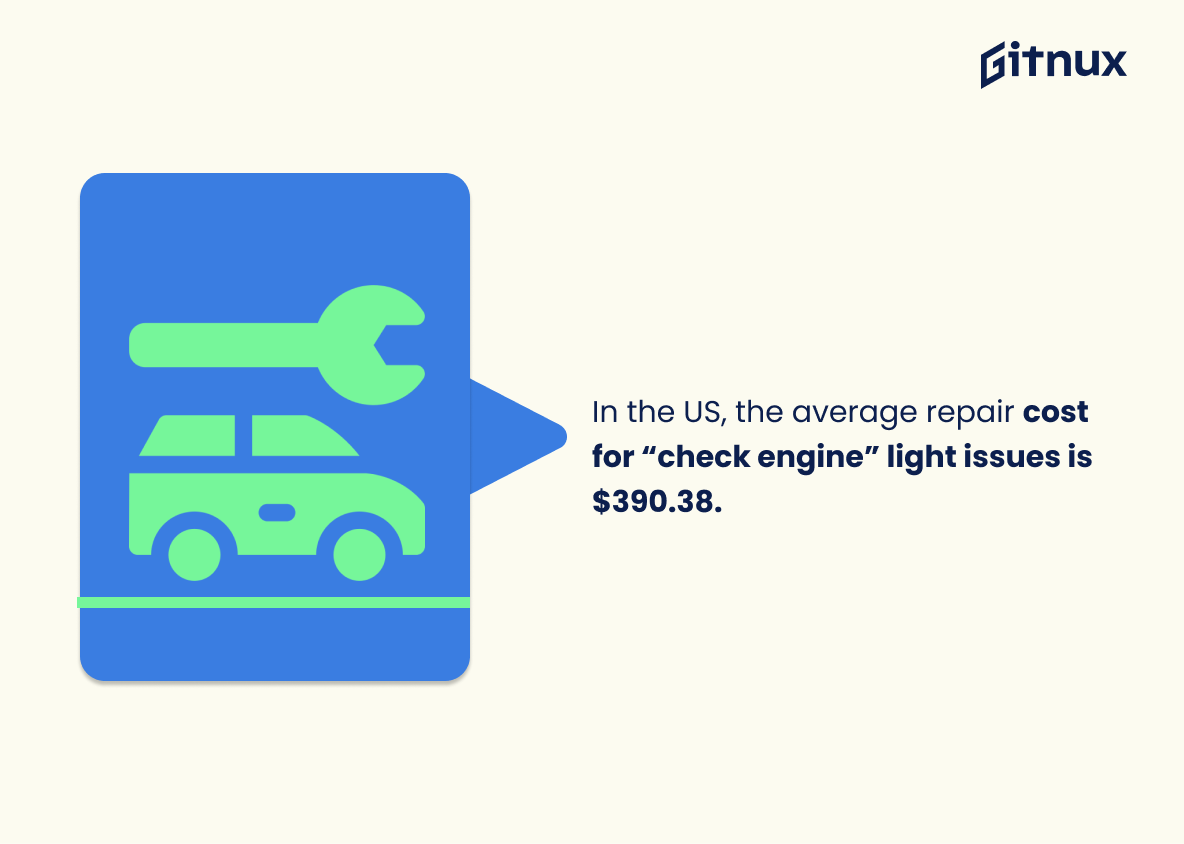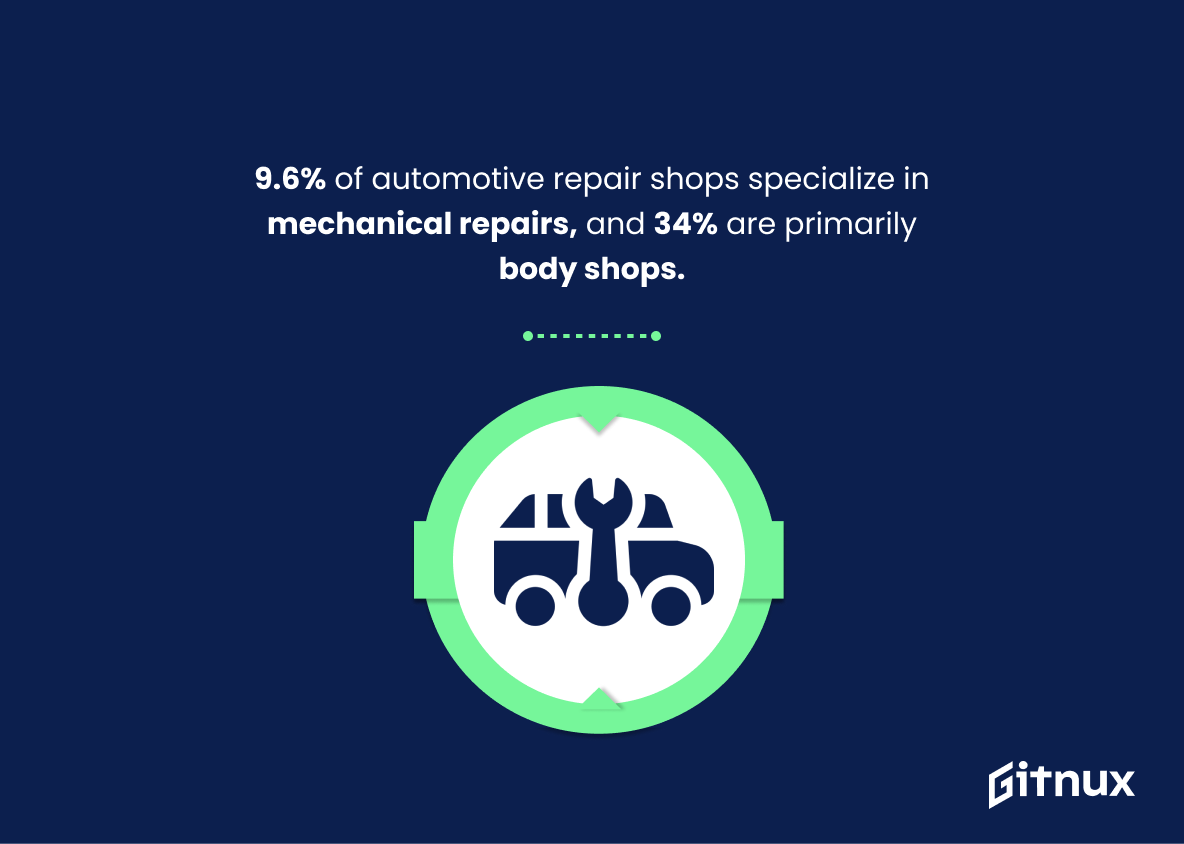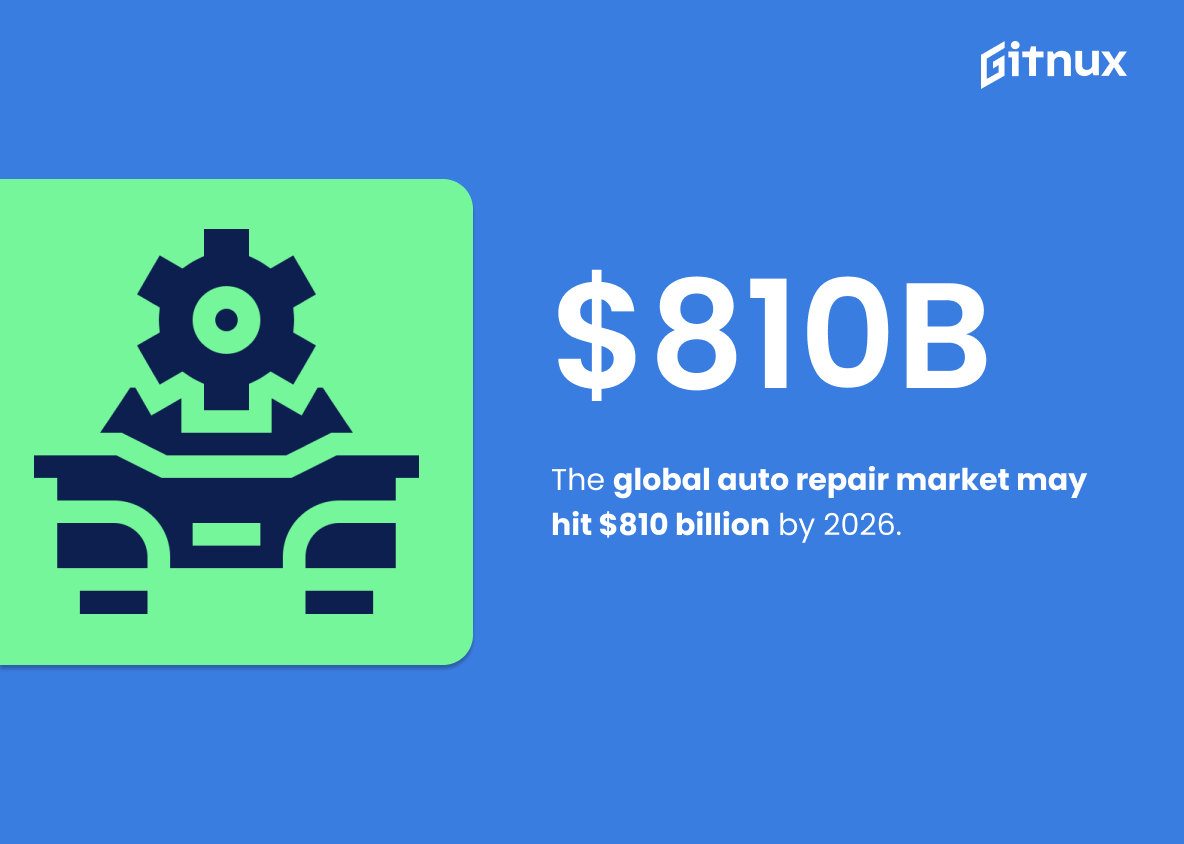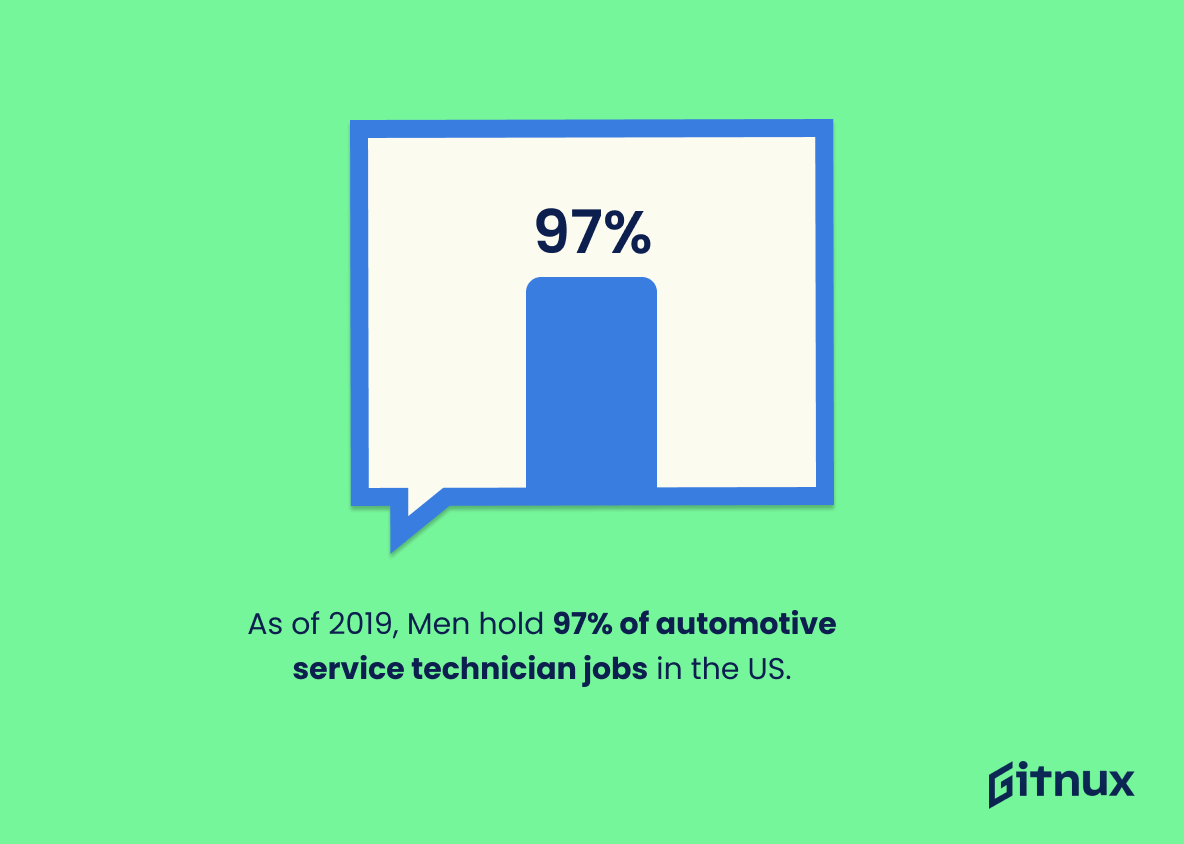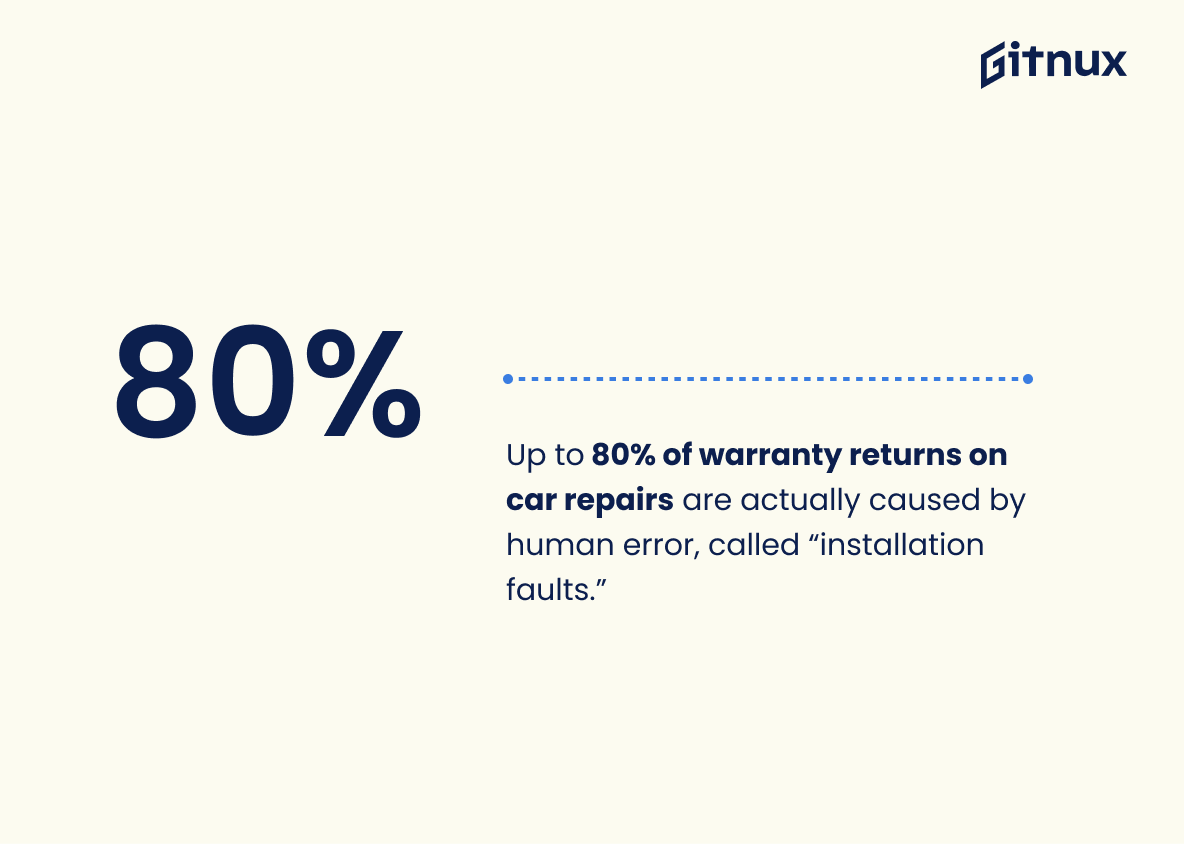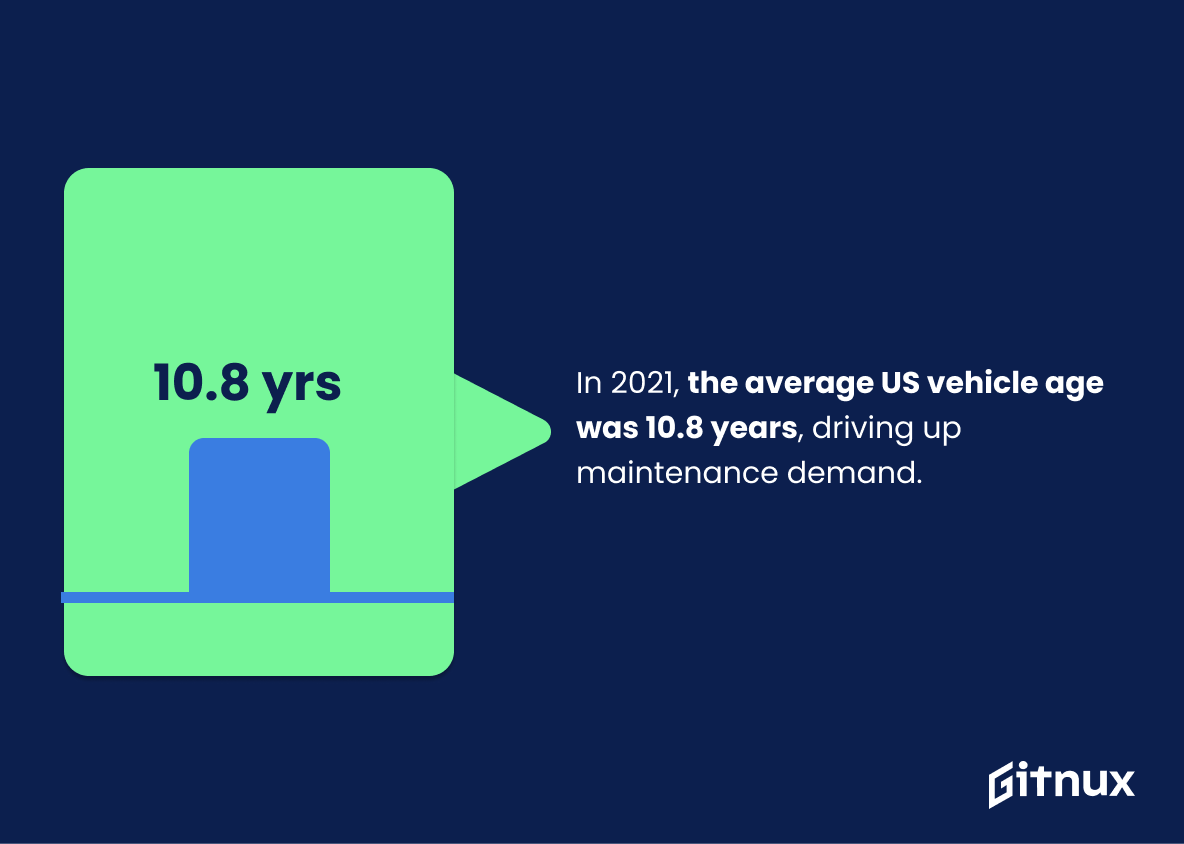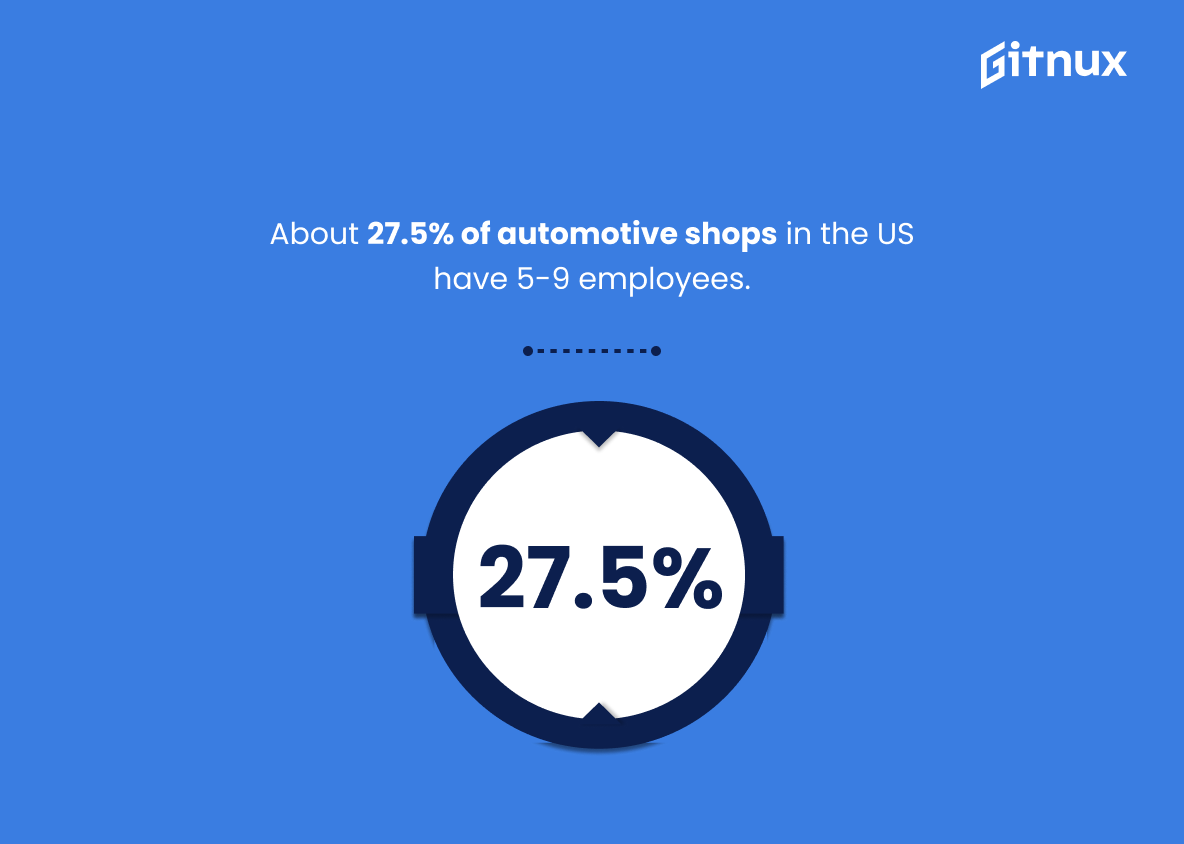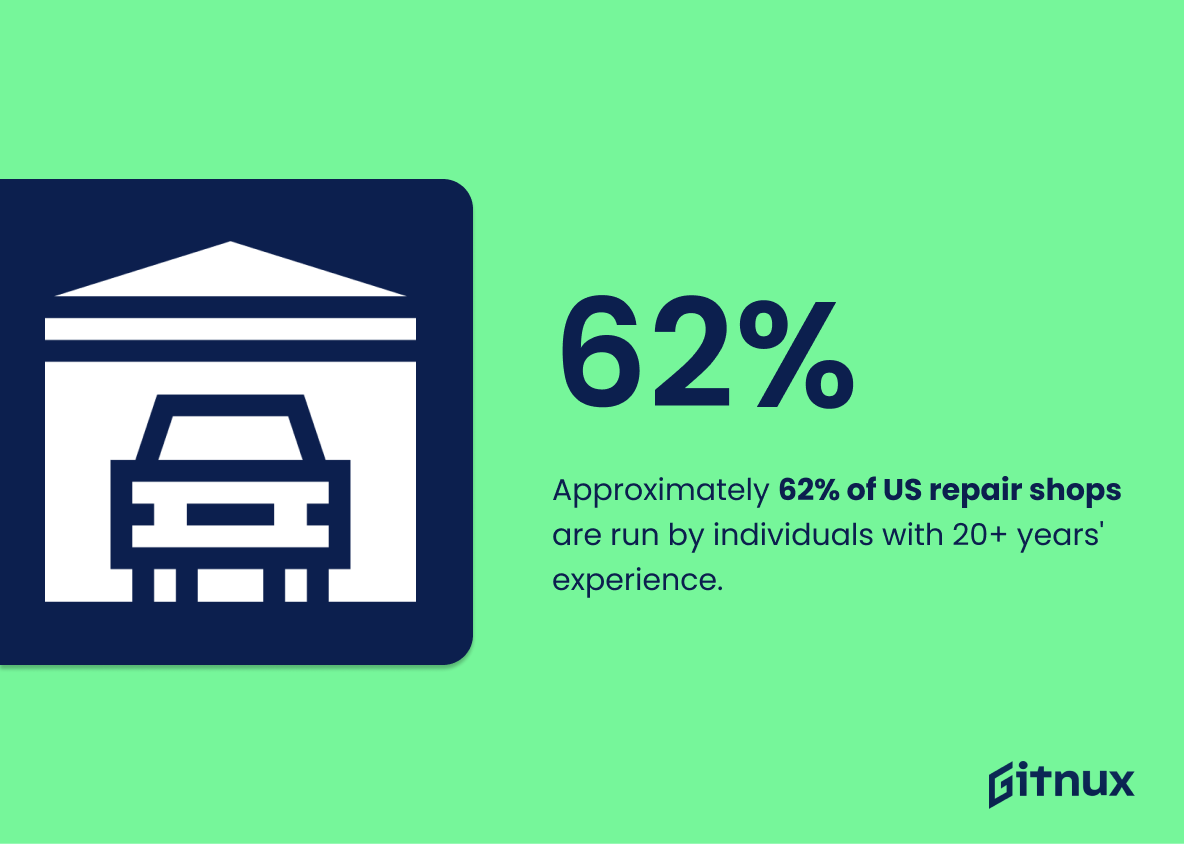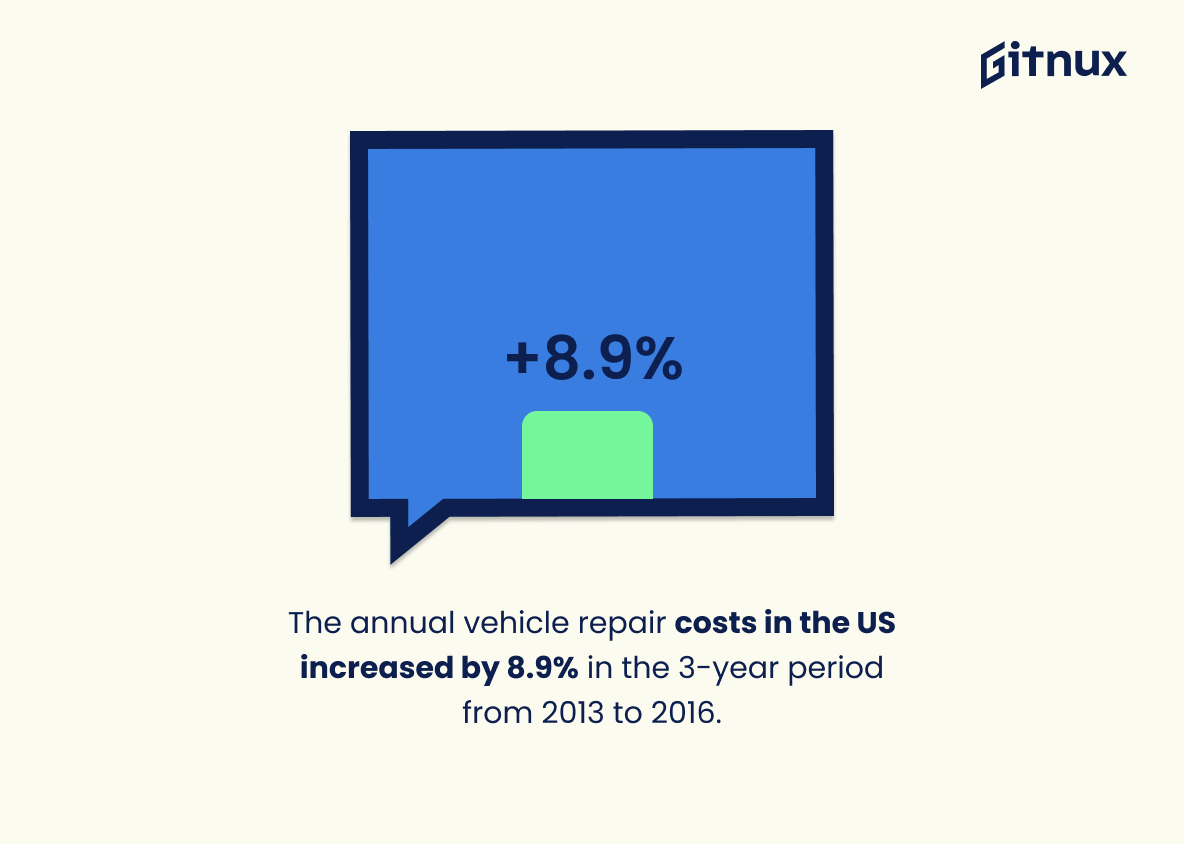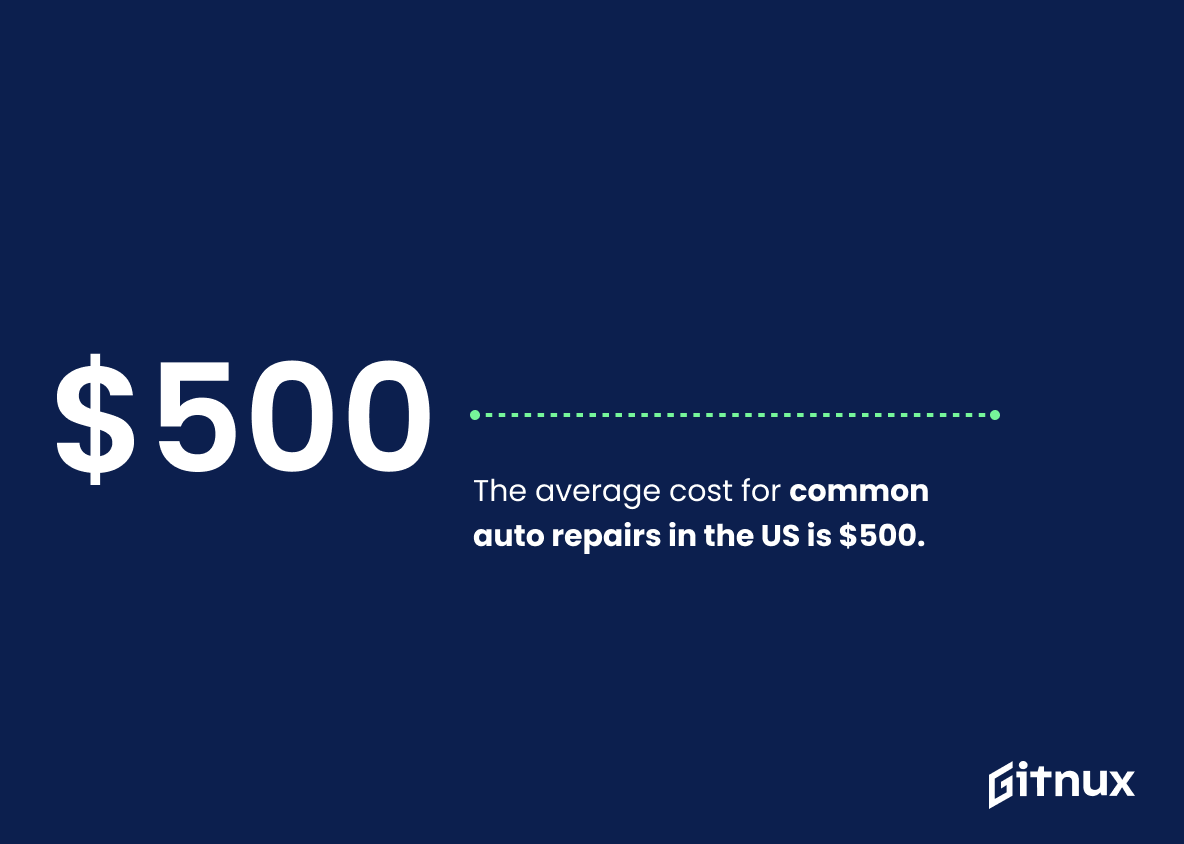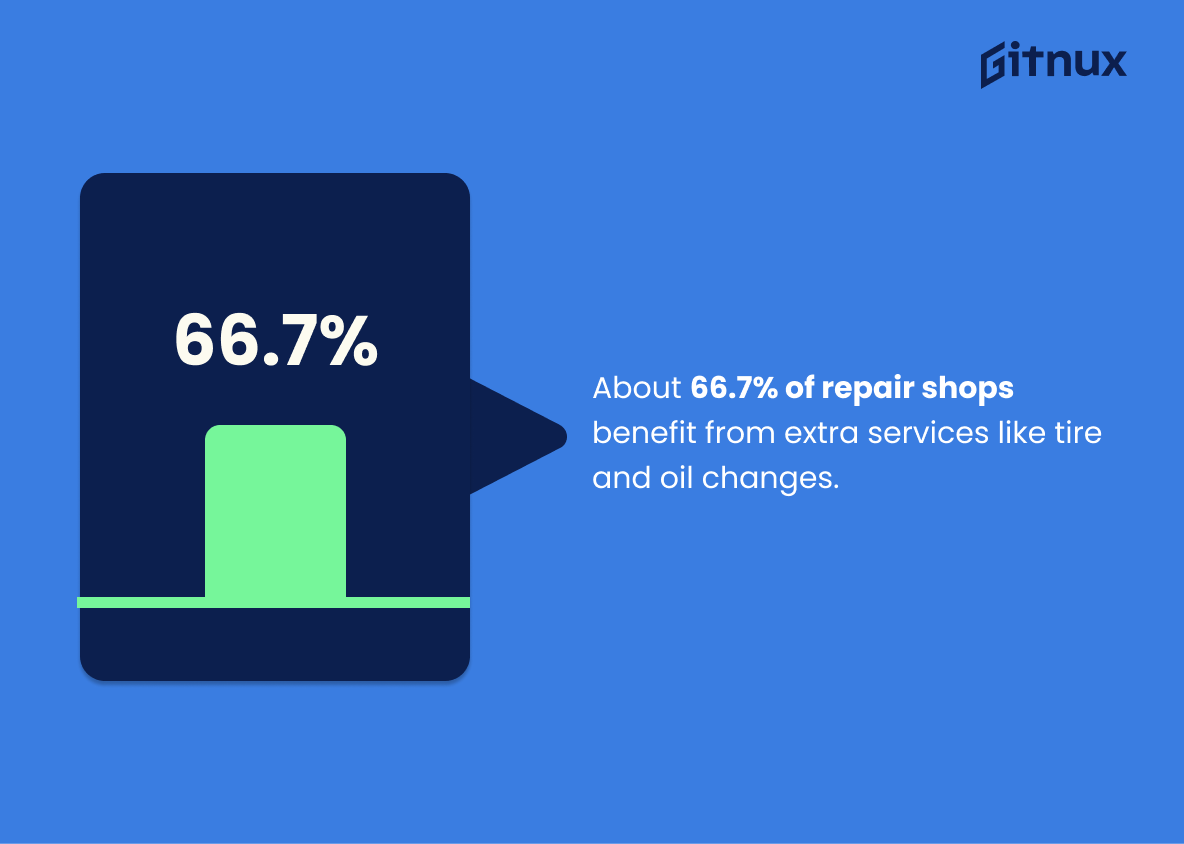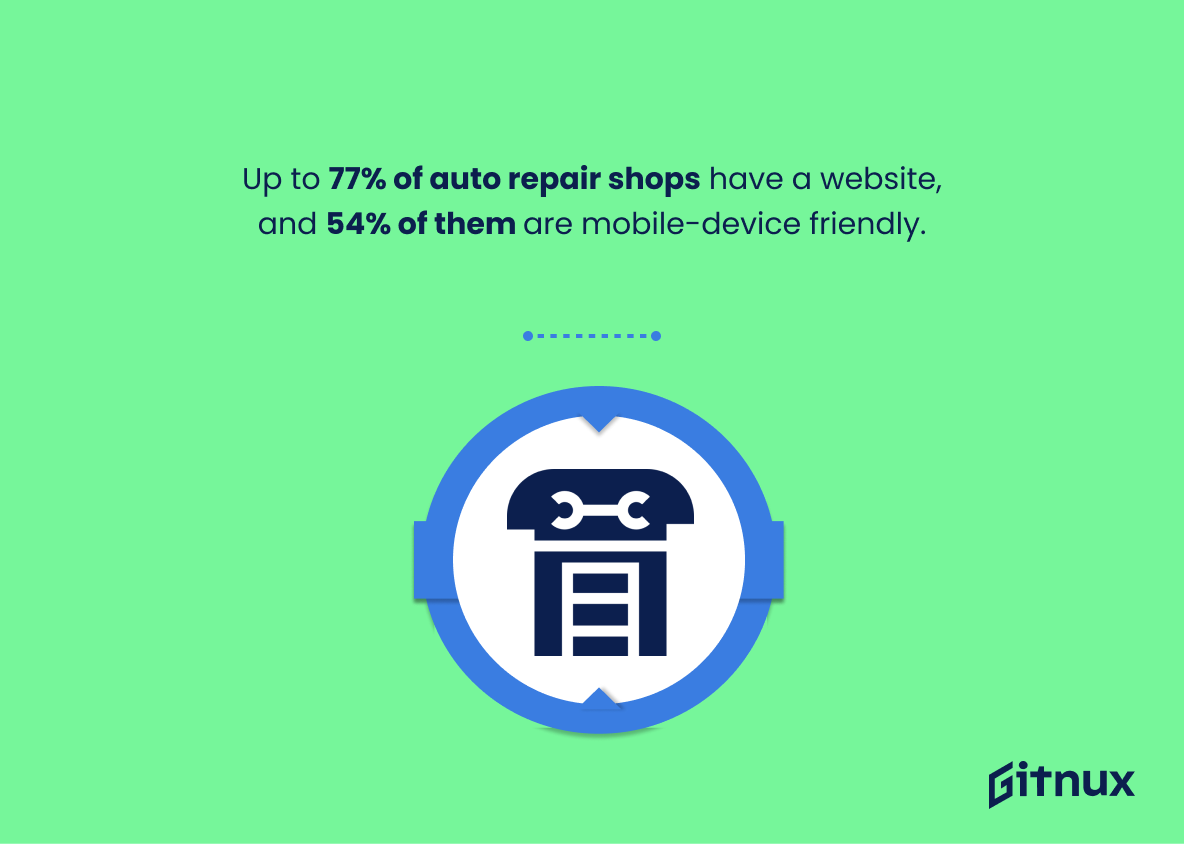The automotive repair and maintenance industry is a major contributor to the US economy. From total revenue generated in 2020, to average annual income of technicians and mechanics, there are many interesting statistics that provide insight into this important sector. In this blog post, we will explore 20 key facts about automobile repair services in the United States.
We’ll look at everything from how much money was spent on motor vehicle maintenance in 2019 to what percentage of auto shops offer customer satisfaction ratings of 4 stars or higher out of 5 stars. Get ready for an informative journey through some fascinating stats.
This statistic is a powerful indicator of the immense size and scope of the US automotive repair and maintenance market. It speaks to the sheer number of vehicles that require repair and maintenance services, as well as the amount of money that is being spent on these services. This statistic is a testament to the importance of the automotive repair and maintenance industry and its impact on the US economy.
On average, automotive service technicians and mechanics in the US earned an average annual income of $44,050 in May 2020.
This statistic is a valuable insight into the financial realities of automotive service technicians and mechanics in the US. It provides a snapshot of the average annual income of these professionals, giving readers an idea of the potential earnings they can expect from a career in this field. This information can be used to inform decisions about whether to pursue a career in automotive repair, and can also be used to compare salaries across different states and regions.
Automobile Repair Statistics Overview
In 2021, there were an estimated 233,528 auto repair and maintenance establishments in the US.
This statistic is a powerful indicator of the importance of auto repair and maintenance in the US. It shows that there is a large and thriving industry dedicated to keeping cars running smoothly and safely. This is especially important in a country where cars are a major part of everyday life. The statistic also highlights the need for people to be aware of the importance of regular maintenance and repair, as well as the need for qualified professionals to provide these services.
The total motor vehicle maintenance expenditure in the US reached approximately $123.7 billion in 2019.
This statistic is a powerful indicator of the importance of automobile repair in the US. It shows that a significant amount of money is being spent on maintaining motor vehicles, which is a testament to the importance of keeping vehicles in good condition. This statistic is also important for businesses in the automobile repair industry, as it shows that there is a large and growing market for their services.
In 2019, independent repair shops held 74% of the aftermarket service and diagnostics market share in the US.
This statistic is a testament to the importance of independent repair shops in the US automotive aftermarket service and diagnostics market. It shows that independent repair shops are a major player in the industry, and that they are providing a valuable service to customers. This is important to note in a blog post about Automobile Repair Statistics, as it highlights the importance of independent repair shops and the services they provide.
In the US, the average repair cost for “check engine” light issues is $390.38.
This statistic is a valuable insight into the cost of automobile repair in the US, providing readers with a tangible figure to consider when budgeting for potential repairs. It serves as a useful reference point for anyone researching the cost of fixing a “check engine” light issue, and can help them make informed decisions about their car maintenance.
9.6% of automotive repair shops specialize in mechanical repairs, and 34% are primarily body shops.
This statistic is significant in the context of a blog post about Automobile Repair Statistics because it provides insight into the types of services offered by automotive repair shops. It reveals that a large portion of these businesses specialize in mechanical repairs, while a significant number focus on body repairs. This information can be used to inform readers about the different types of services available and the prevalence of each type.
The global automotive repair and maintenance services market is projected to reach $810 billion by 2026.
This statistic is a testament to the immense potential of the automotive repair and maintenance services market. It highlights the fact that the industry is growing at a rapid pace and is expected to reach a staggering $810 billion by 2026. This is a clear indication that the automotive repair and maintenance services industry is a lucrative one and is likely to continue to be so in the future. This is great news for those looking to invest in the industry or to start their own automotive repair and maintenance business.
As of 2019, Men hold 97% of automotive service technician jobs in the US.
This statistic is a stark reminder of the gender disparity in the automotive service technician industry in the US. It highlights the need for more female representation in the field, as well as the need for more equitable opportunities for women to pursue careers in this field. It also serves as a reminder of the importance of creating an inclusive and diverse workplace in the automotive service technician industry.
Up to 80% of warranty returns on car repairs are actually caused by human error, called “installation faults.”
This statistic is a stark reminder of the importance of proper installation when it comes to car repairs. It highlights the fact that even the most reliable parts and components can be rendered useless if not installed correctly. This is a critical point to consider when discussing automobile repair statistics, as it emphasizes the need for qualified technicians and proper installation procedures.
The average age of vehicles on the road in the US has increased to 10.8 years in 2021, which leads to a higher demand for maintenance and repair services.
This statistic is significant in the context of automobile repair statistics because it highlights the need for more maintenance and repair services. As the average age of vehicles on the road increases, so does the demand for these services. This means that automobile repair businesses must be prepared to meet the growing demand for their services in order to remain competitive.
About 27.5% of automotive shops in the US have 5-9 employees.
This statistic is significant in the context of Automobile Repair Statistics because it provides insight into the size of the average automotive shop in the US. It indicates that the majority of automotive shops are relatively small businesses, with the majority having 5-9 employees. This information can be used to inform decisions about the automotive repair industry, such as the types of services offered, the cost of labor, and the availability of qualified technicians.
An estimated 61.9% of repair shops in the US are owned and operated by individuals who have worked at the shop for 20 years or more.
This statistic speaks volumes about the longevity of the automobile repair industry. It shows that many individuals have dedicated their lives to the craft, and have been able to sustain their businesses for two decades or more. This speaks to the reliability and trustworthiness of the industry, and is a testament to the hard work and dedication of the individuals who have kept it alive.
The annual vehicle repair costs in the US increased by 8.9% in the 3-year period from 2013 to 2016.
This statistic is a telling indication of the rising costs of automobile repair in the US. It highlights the need for drivers to be aware of the increasing expenses associated with maintaining their vehicles, and to plan accordingly. It also serves as a reminder of the importance of regular maintenance and repair, as the costs of neglecting these tasks can quickly add up.
The average cost for common auto repairs in the US is $500.
This statistic is a valuable insight into the cost of auto repairs in the US, providing readers with a useful reference point when considering the cost of repairs for their own vehicles. It is also a useful indicator of the overall cost of auto repairs in the US, allowing readers to compare the cost of repairs in their own area to the national average.
Approximately 66.7% of repair shops claim their business is positively impacted by offering additional services such as tire changes or oil changes.
This statistic is a testament to the value of offering additional services in the automobile repair industry. It shows that providing additional services can have a positive impact on a repair shop’s business, which is an important factor for any shop owner to consider. By offering additional services, repair shops can increase their customer base and generate more revenue. This statistic is a valuable insight into the success of repair shops that offer additional services, and it can be used to inform decisions about how to best run a repair shop.
Up to 77% of auto repair shops have a website, and 54% of them are mobile-device friendly.
This statistic is a telling indication of the importance of having a website and making it mobile-device friendly for auto repair shops. With such a high percentage of shops having a website and a majority of them being mobile-device friendly, it is clear that having an online presence is essential for auto repair shops to stay competitive in the market.
About 73.6% of repair shops in the US provide a customer satisfaction rating of 4 stars or higher (out of 5 stars).
This statistic is a testament to the quality of service provided by repair shops in the US. It shows that the majority of repair shops are providing a satisfactory experience to their customers, which is a great sign for the industry. This statistic is important for anyone looking to get their car serviced, as it provides assurance that they will be receiving a quality service.
Conclusion
The automotive repair and maintenance industry is a thriving sector in the US, with total revenue generated reaching $146.2 billion in 2020. Automotive service technicians and mechanics earned an average annual income of $44,050 that same year, while there were 233,528 auto repair establishments across the country. Motor vehicle maintenance expenditure totaled around $123.7 billion in 2019 alone; independent repair shops held 74% of aftermarket service market share at this time as well. Brake repairs accounted for 22.2% of scheduled checkups on average, whereas “check engine” light issues costed approximately $390 to fix on average nationwide – 9.6% specialize in mechanical repairs while 34% are primarily body shops globally speaking too. The global automotive services market is projected to reach over 800 billion by 2026; men hold 97 percent of technician jobs here domestically meanwhile up to 80 percent warranty returns can be attributed to human error (installation faults). As vehicles age more each year (10+ years now), so does their need for regular upkeep which has caused costs associated with such tasks increase 8-9%. Common car problems like transmission issues account for 18%, but most customers rate 4 stars or higher when it comes customer satisfaction ratings from these businesses who also have websites 77%, 54 % being mobile friendly respectively too.
References
0. – https://www.bls.gov
1. – https://www.carmd.com
2. – https://www.mcsmag.com
3. – https://www.rts.i-car.com
4. – https://www.iseecars.com
5. – https://www.mordorintelligence.com
6. – https://www.automd.com
7. – https://www.statista.com
8. – https://www.repairerdrivennews.com
9. – https://www.catalyst.org
10. – https://www.autopartsasia.in
11. – https://www.aaa.com
